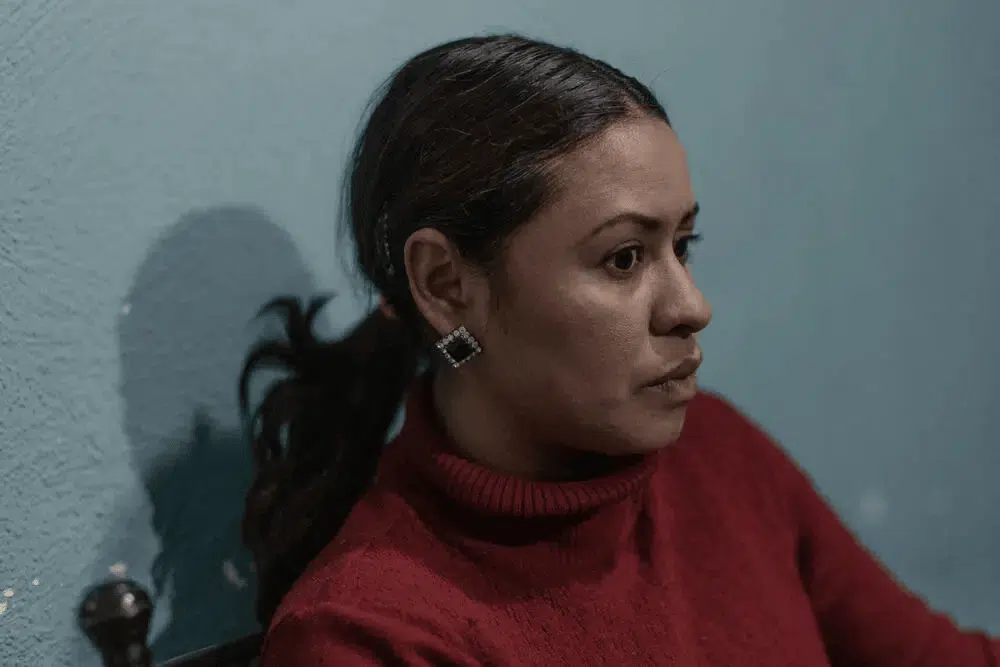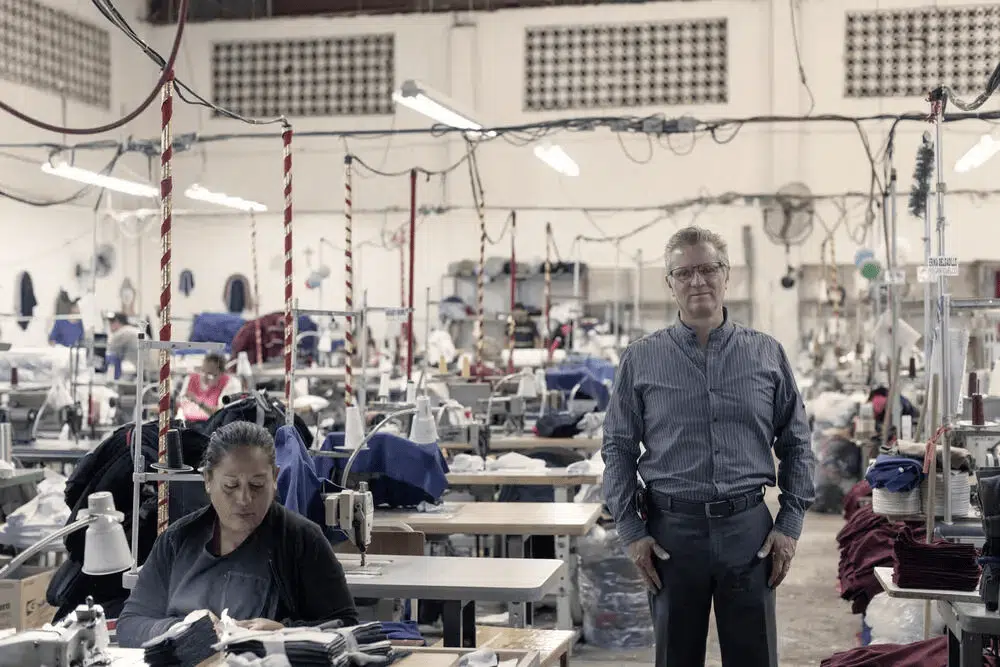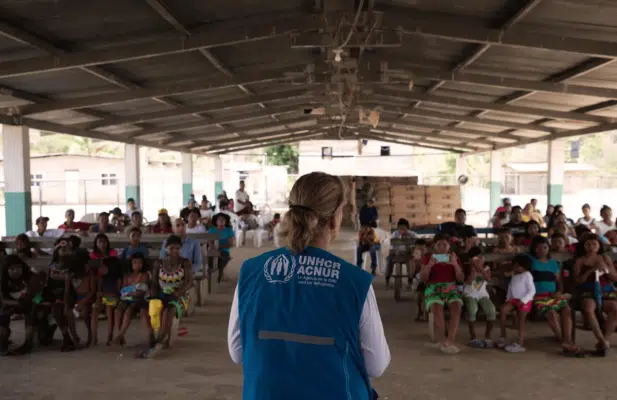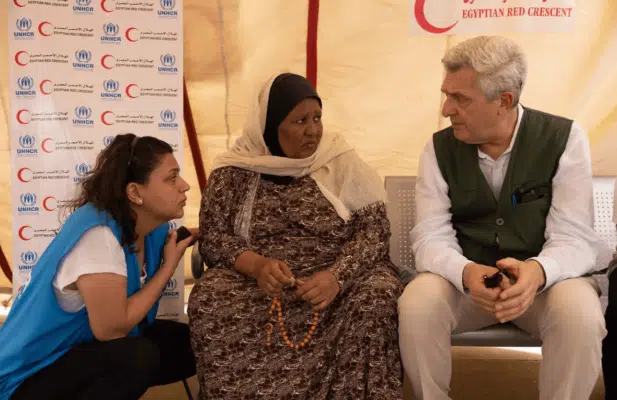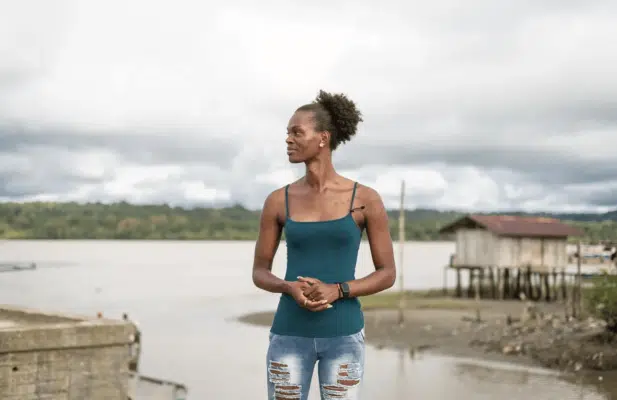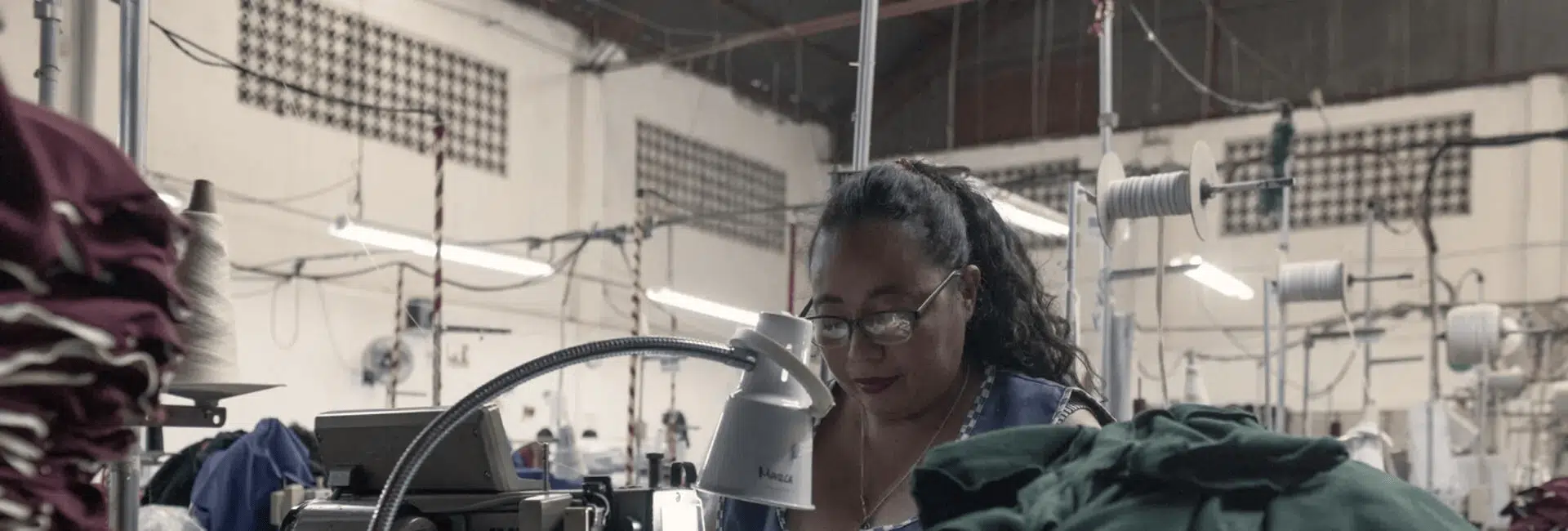
Daysi Cruz Martinez, a Honduran refugee, at work in a textile factory in Aguascalientes. © UNHCR/Nicolo Filippo Rosso
An innovative integration programme led by UNHCR is helping refugees relocate from Mexico’s congested southern border to cities that offer more opportunities.
The bus that pulls up outside a hotel in the city of Aguascalientes in central Mexico has been on the road for 19 hours. Its passengers emerge looking exhausted and bewildered, but many still manage a smile for Paola Monroy, a senior field associate with UNHCR, the UN Refugee Agency, who greets each of them with a warm hug.
It is a big moment for Marcello*, 42, a single father from Honduras who has travelled here with his three children. “There’s a bit of fear because we’re here to start a new life and we don’t know anyone who can welcome us, but it’s a fresh start,” he said.
The family fled Honduras after a local gang tried to forcibly recruit his two sons, aged 12 and 16. “We couldn’t stay, our lives were at risk,” said Marcello. “I sold everything I could and with that we started our journey.”
The first stage of that journey ended in Tenosique in southern Mexico where Marcello worked odd jobs for eight months while they waited for their asylum process to be finalized. But like other towns and cities in southern Mexico where the vast majority of asylum-seekers arrive to the country, Tenosique could not offer the formal employment and stability he craved for his family.
He and the other refugees stepping off the bus are hoping to find those things in Aguascalientes, a small but growing city with booming automotive and textile sectors and a picturesque colonial-era downtown. It is one of 11 cities in central and north-eastern Mexico where refugees are being relocated from the south through an integration programme led by UNHCR.
New beginnings
Since it launched in 2016, the project has helped more than 31,000 people like Marcello start new lives in Mexican cities that can offer safe, affordable living conditions, formal job opportunities and access to education and health services. Aguascalientes alone has received 3,000 refugees and buses like the one Marcello arrived on are delivering new arrivals every couple of weeks.
They spend three nights at a hotel, receiving information from UNHCR and its partners about housing, documentation, and job opportunities and getting assistance with specific needs. A one-off cash grant then helps them to cover their first month’s rent and other costs.



